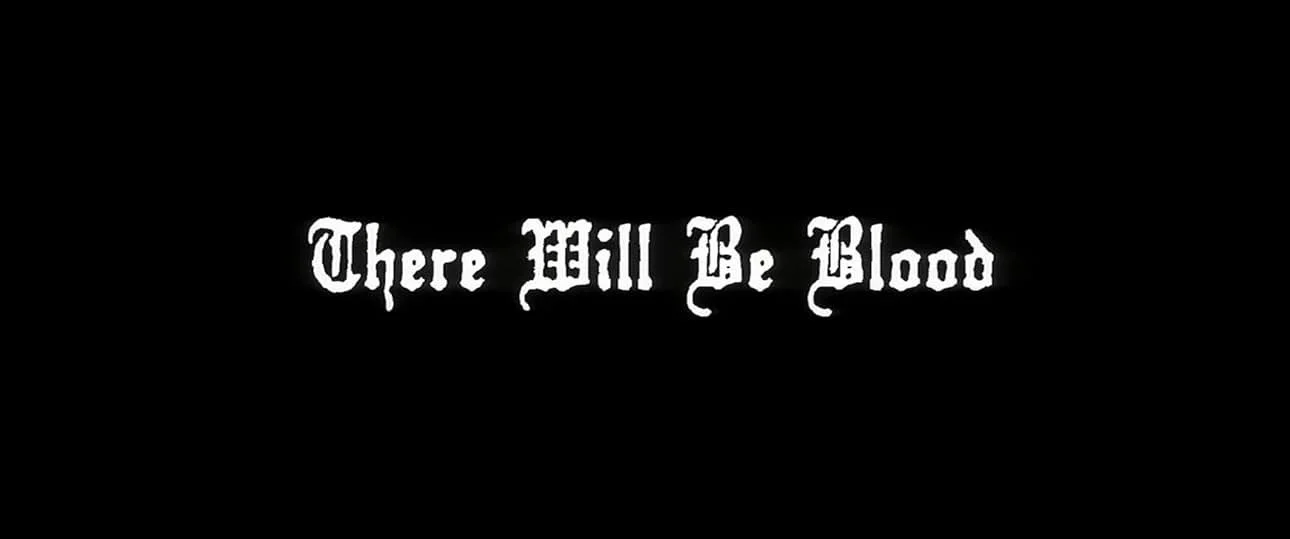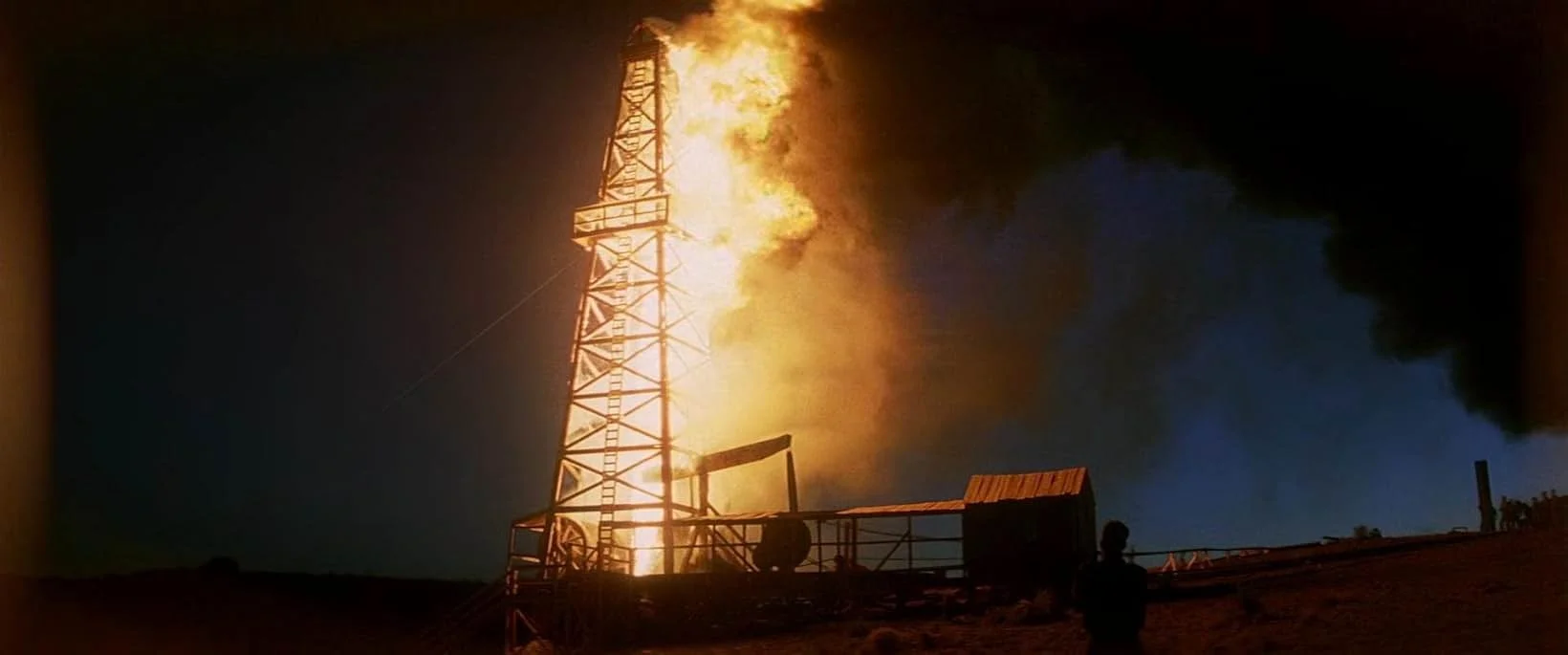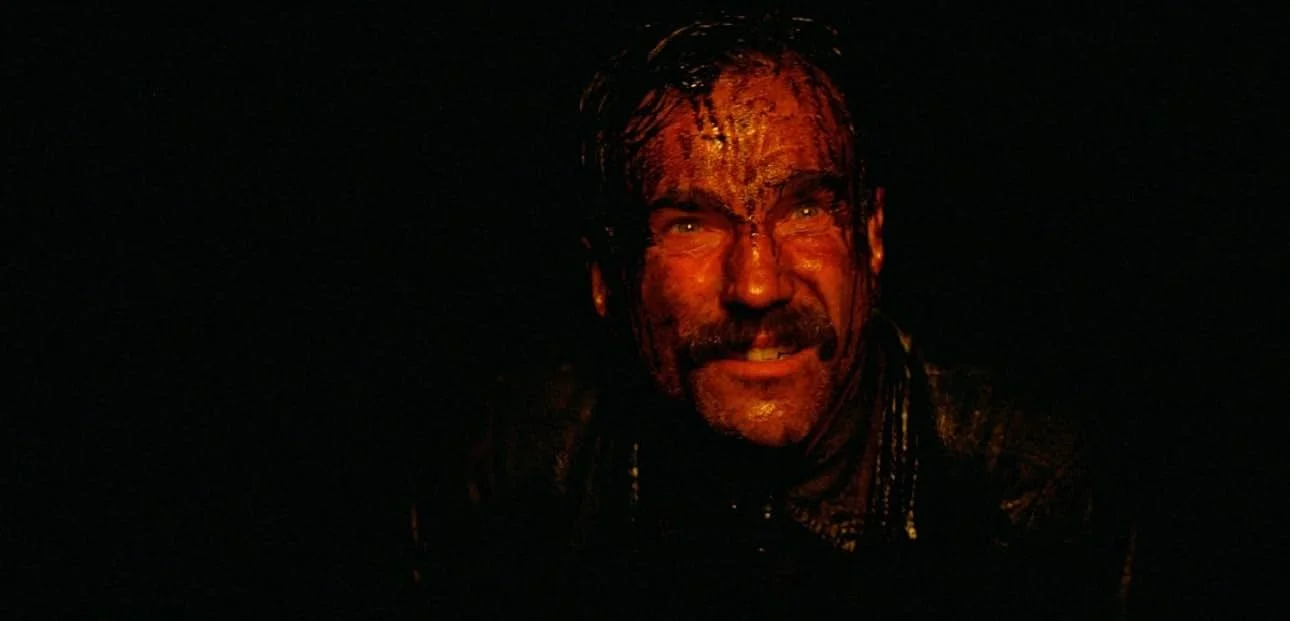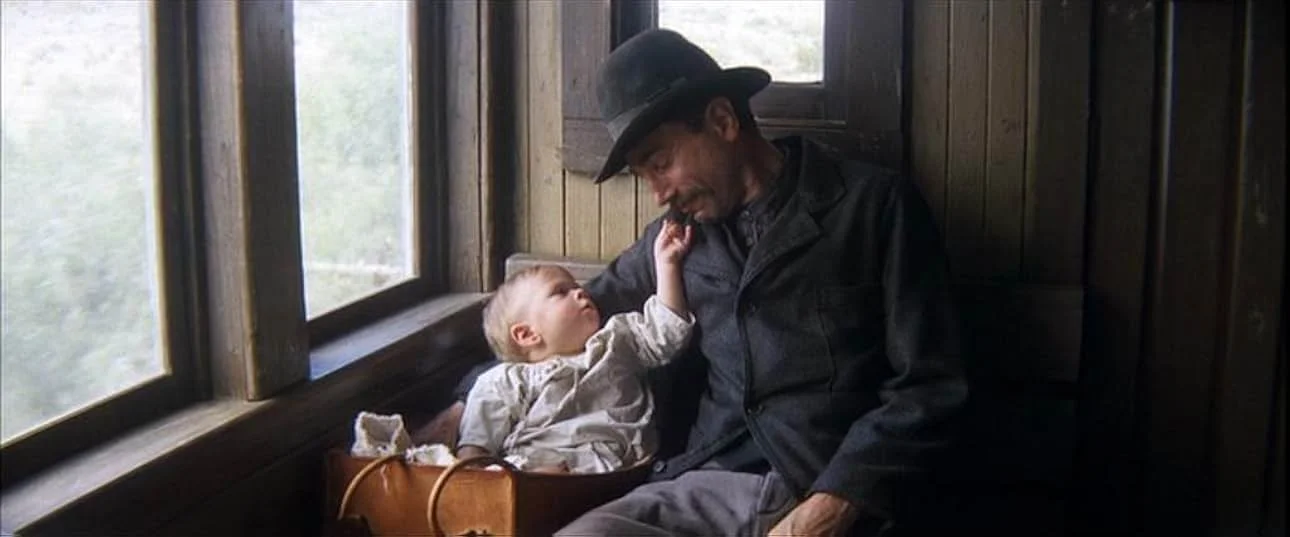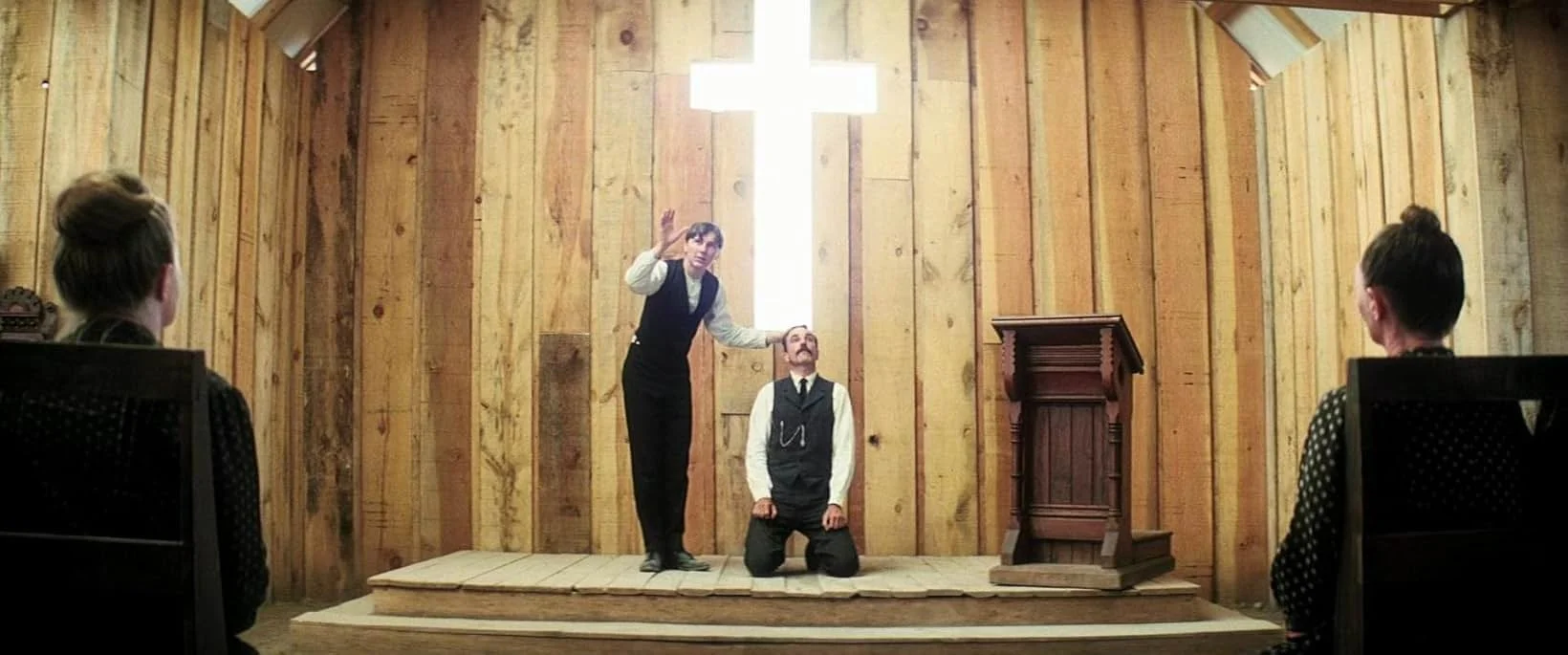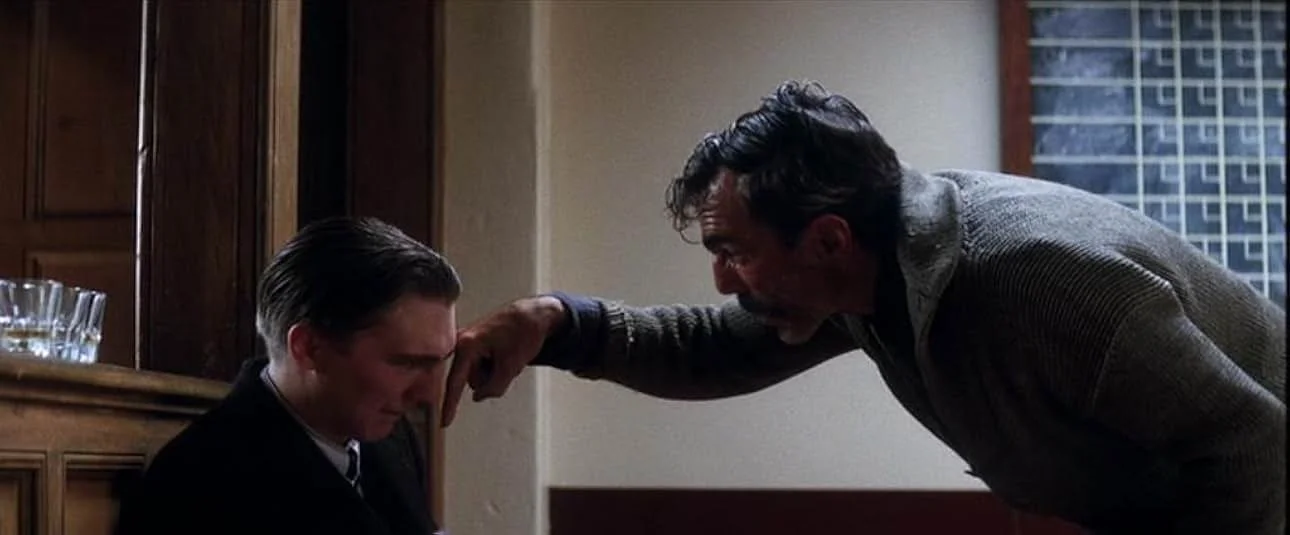There Will Be Blood (2007) Review - Director Series
Anderson’s next obsession came in the form of Oil, and the tycoons that started the industry in America. Anderson began writing the script with Day-Lewis in mind. He finally crafted a 150-page first draft using Upton Sinclair’s novel Oil! As inspiration.
Anderson said the film only really takes from the first 100 pages. It’s a shame the Academy’s rules on adapted and original screenplays are so strict. Paul Thomas Anderson could have an Oscar if this had been allowed to be submitted in Original Screenplay. As it probably should’ve been.
To even attempt to write about this film seems silly; ever since its release, it’s been hailed as a masterpiece. Even the NY Times did a list of the 100 Best films of the 21st century, voted by filmmakers and critics; it ranked third.
There have been multiple writings, podcasts, and YouTube videos on the film. So, it was hard to decide where to start on this film and what to talk about, because without a road map, you could drivel on and on for thousands of words on this film.
Simply put, There Will Be Blood is staggering. To put it pretentiously, it’s like watching The Great American Novel. Yes, it is technically adapted, yet this adaptation is merely a roadmap for Paul Thomas Anderson.
Yes, this scene caused No Country for Old Men to shut down filming cause of the smoke.
It’s rare to have a film this rich and expansive and not be based on some heralded work. It’s why I loved Brady Corbet’s The Brutalist, which owes a debt to There Will Be Blood.
Robert Elswit won his, so far, only Oscar for the cinematography for this film. Impressive considering he beat a double-nominated Roger Deakins for No Country for Old Men and The Assassination of Jesse James by the Coward Robert Ford, which maybe he should’ve won for.
In any case, this film looks incredible; not only does it look great, but it’s also expansive. Much more expensive than any of his other films, including all of PTA’s previous films.
My favorite shot in the entire film is Daniel Plainview’s oil-smeared face staring with glee at his well on fire while darkness surrounds the frame, as if Daniel is all consumed by his greed and thirst for oil.
This is a step up not just for Robert but for PTA as well. It’s much bigger than his other films. Magnolia and Boogie Nights feel massive because of the cast. Yet, they’re small stories told in almost a singular town.
Even if Daniel is running all over the world, it still feels wide-ranging. Maybe it’s the everlasting desert that surrounds the town of Little Boston. Or maybe it is the titanic performance of Daniel Day-Lewis.
A performance that I couldn’t do justice to even if I tried. Day-Lewis doesn’t just give his best performance, but one of the best performances ever put on screen. He fully embodies Plainview, making him human rather than just a character.
Giving him humanity, allowing the audience to be on his side, until we aren’t, maybe? His grayness makes Daniel Plainview feel like a real person, as if this is a historical biopic. Like when everyone thought Lydia Tar was a real person.
The cinematography, the script, the budget, the performances, all of this makes There Will Be Blood feel like PTA’s largest film.
Not only larger, but its themes are a bit different from PTAs’ other films. There is still a sense of found family, but the found family in this case is Daniel Plainview taking a baby whose father died working on his well and using him to seem more approachable when pitching to towns to drill for oil.
Here, the major theme is capitalism and religion, and the role they play in American society. How America was built on these two pillars, and they’re also the biggest destroyers of America. Over 100 years of capitalism have wedged a massive rift between the rich and the poor.
Religion, a wolf in sheep’s clothing, making people believe they’re doing the right thing in the name of God, and instead are creating laws to hurt/alienate groups of people.
Daniel Plainview (Daniel Day-Lewis) and Eli Sunday (Paul Dano) represent these two factions of control. Capitalism and Religion. Both fighting for control of the town of Little Boston, as if there can be only one way, which is an apt representation of both factions.
Capitalism is a zero-sum game. One business grows as others lessen. In religion, we are taught that our belief is the one true belief, and no other person/religion is correct. Really, religion and capitalism are two sides of the same coin.
Interestingly, Eli and Daniel couldn’t get along and have everyone work for them. But something I noticed on this rewatch is the reason Eli and Daniel hate each other and are at odds with each other.
It’s because they see themselves in each other and hate the other person for it. They’re like a mirror reflecting their worst qualities back on them; this is why their story only has one possible outcome: blood. The mirror must be destroyed.
I read a theory that the entire ending of this final scene/confrontation is a drunken hallucination. Which I can see, but it doesn’t meld with my reading here, so…I’M IGNORING IT. *Quietly* even if I think it makes sense.
This is just an example of why Paul Thomas Anderson is my favorite filmmaker. His films get richer with every viewing. I get more every time I revisit one of his films, which is a sign of strength for the film.
Something I’ve realized through the years of rewatching TWBB is how funny it is. The first time I watched the film, I was overwhelmed and wanted to put it on a pedestal.
Now I still think it’s one of the greatest movies ever made, but I also recognize how funny the whole film is, which for some would undercut its greatness. Personally, it’s just another strength of the film.
I hope some of this made sense. If this looked too long to read, I get it. Just know that I believe this is one of the greatest movies ever made, not just of the 21st century. I hope in two years it gets a rerelease, and I can watch it on the big screen.
5/5 Stars
